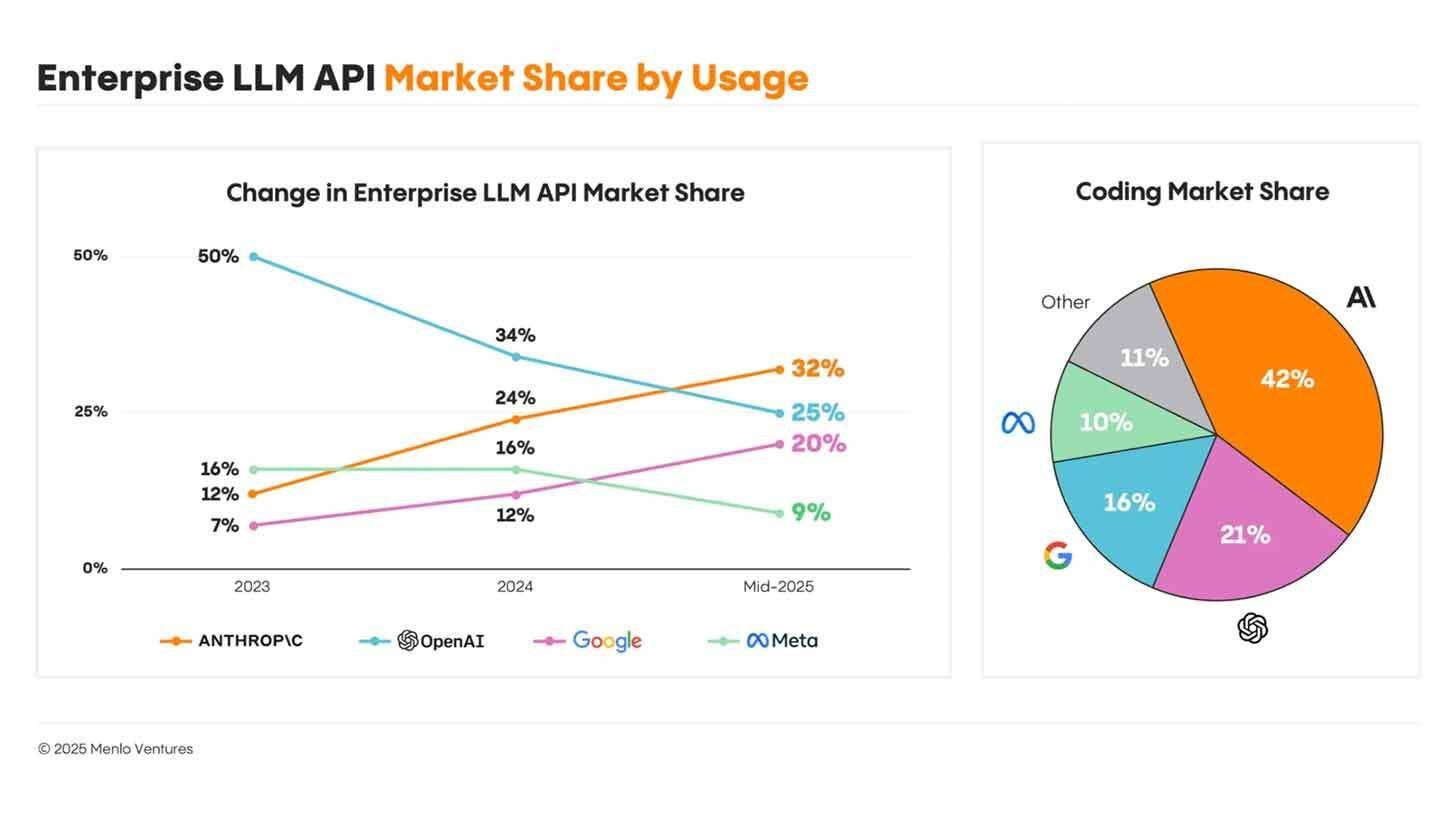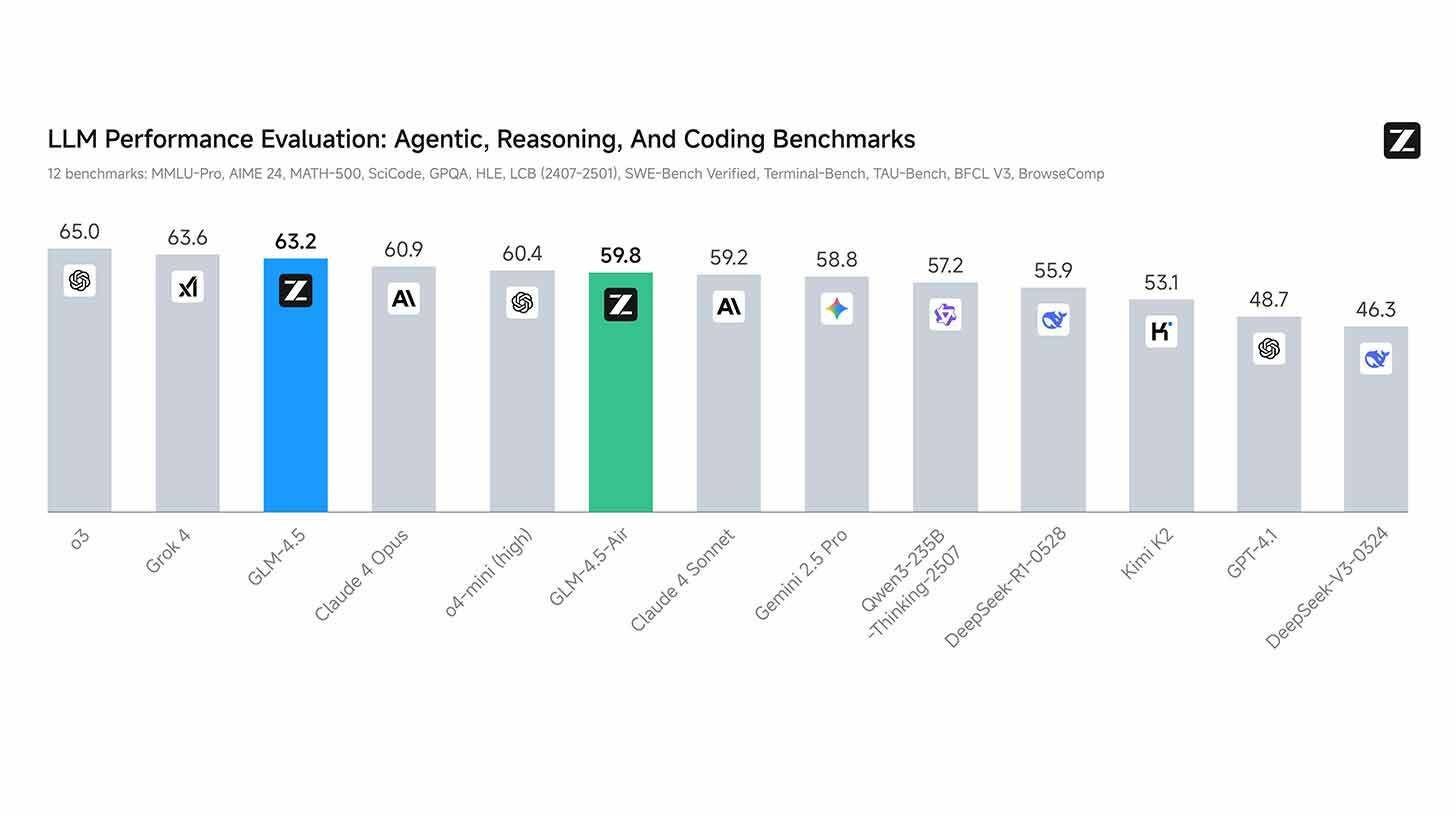Weekly AI News #28
Your go-to digest for groundbreaking AI trends and innovations
Hey it’s Jul,
Greetings and welcome to the twenty-eighth edition of “Weekly AI News”!
Things are escalating between Microsoft and OpenAI. Their attempt to renegotiate the famous AGI clause is turning sour. Quick reminder: if OpenAI declares they've achieved AGI (or accumulates $100 billion in profits), Microsoft loses all access to the tech they funded. Now that both companies are chasing the same customers and OpenAI wants more independence, negotiations are explosive. The year-end deadline is approaching, SoftBank is waiting in the wings, and Microsoft is threatening legal action if they don't like the new terms.
While these two play out their amicable divorce, Zuckerberg philosophizes about "personal superintelligence" and how his glasses will free us from screens. Plot twist: Meta generates $47.5 billion while making us even more addicted to Instagram (+20% time spent, thanks AI!).
Meanwhile, China is dropping open source models that rival GPT-4, Europe is scaring everyone with €35M fines, and Anthropic is casually discussing a $150 billion valuation. Have a great week everyone!
Happy reading!
🌍🛰️ Google's AI 'virtual satellite' for planet mapping
Google DeepMind launches AlphaEarth Foundations, an AI model that integrates Earth observation data to create detailed maps of changing landscapes. The system combines optical images, radar, and 3D laser mapping for near real-time tracking of deforestation and ecosystem changes, providing yearly updates through Earth Engine.

🧠🚀 Google launches Gemini Deep Think, its most advanced reasoning model
Google unveils Gemini 2.5 Deep Think, a multi-agent AI model exploring multiple ideas in parallel for complex questions. Available for $250/month Ultra subscribers, it outperforms competitors on tough benchmarks and helped Google earn a gold medal at the 2025 International Math Olympiad.
💻✨ Google is testing a vibe-coding app called Opal
Google enters the vibe-coding trend with Opal, now in U.S. testing through Google Labs. Users can create mini web apps using text prompts or remix existing ones, with the tool using multiple Google models to generate and publish shareable applications.

📹📊 Google's NotebookLM rolls out Video Overviews
NotebookLM adds Video Overviews, transforming dense documents into narrated visual presentations. The feature creates digestible slides from PDFs, notes, and images, offering customizable visual alternatives to Audio Overviews with support for multiple languages coming soon.

🔞🤖 Google tests AI age detection across all U.S. products
Google pilots machine-learning age estimation to identify under-18 users and apply stricter protections. The system analyzes account activity patterns and automatically adjusts experiences, including blocked adult content and disabled personalized ads for detected minors.
✅❌ Google signs EU's AI code as Meta refuses
Google agrees to sign the EU's voluntary AI code of practice ahead of new regulations, while Meta declines calling it "overreach." This split highlights mounting tension over transparency requirements and copyright obligations as companies face two years to comply with Europe's strictest digital market rules.
💰🦾 Anthropic Said to Discuss $150 Billion Valuation
Anthropic explores raising $3 billion at a $150 billion valuation with investors including MGX. The AI startup's revenue hit $4 billion annualized pace, with gross profit margins reaching 60-70% on direct sales, though margins through cloud partners remained negative earlier this year.
⏱️💸 Anthropic rolls out weekly rate limits to curb Claude Code power users
Anthropic introduces tiered weekly caps for Claude Pro and Max subscribers starting August 28, targeting users running Claude Code 24/7 or violating terms. Max subscribers can purchase extra usage at API rates following repeated outages and soaring demand.
📈👑 Anthropic takes enterprise AI lead as spending surges
Menlo Ventures reports Anthropic captured 32% enterprise market share, overtaking OpenAI's 25%. Enterprise LLM API spending doubled to $8.4B in six months, with code generation emerging as the breakout use case and 66% of companies upgrading within ecosystems rather than switching.

📚🎓 ChatGPT's Study Mode for deeper learning
OpenAI launches Study Mode for ChatGPT, using Socratic questions and step-by-step guidance instead of direct answers. Created with teaching experts, it actively resists solution requests while offering interactive learning for Free, Plus, Pro, and Team users.

💵📊 OpenAI Revenue Hits $12 Billion Annualized Pace
OpenAI reaches $12 billion in annualized revenue, nearly doubling from year's start. The company serves 700 million weekly active users, up from 500 million in March, while expecting to burn $8 billion in 2025, up $1 billion from earlier projections.
🇳🇴⚡ OpenAI to launch first European data center in Norway
OpenAI announces Stargate Norway, its first European AI data center near Narvik, running 100% renewable energy. The facility will support 100,000 Nvidia GPUs with advanced liquid cooling, offering priority access to local startups while meeting EU transparency requirements.

🤖✅ OpenAI's ChatGPT Agent passes 'I am not a robot' tests
ChatGPT Agent successfully navigates Cloudflare's CAPTCHA verification, ironically proving it's "not a bot" while being one. The AI controls browsers autonomously for multi-step tasks, highlighting the weakening effectiveness of traditional bot-detection methods against sophisticated AI.

🌐🤖 Microsoft's 'Copilot Mode' for agentic browsing
Microsoft launches Copilot Mode in Edge, integrating AI directly into browsing with voice control and multi-tab analysis. Free initially on Windows and Mac, it will eventually access browser history and credentials for automated bookings, joining the agentic browser wars alongside competitors.

🤝💼 Microsoft Nears OpenAI Agreement for Ongoing Tech Access
Microsoft and OpenAI near agreement allowing Microsoft to use OpenAI's technology even after achieving artificial general intelligence. The deal removes a major obstacle to OpenAI's for-profit transition, though terms remain unfinalized and subject to change.
🧠🌟 Zuckerberg's 'personal superintelligence' vision
Meta CEO unveils vision to "bring personal superintelligence to everyone," positioning smart glasses as future primary computing devices. Zuckerberg hints at closing advanced models for safety, marking a shift from Meta's open-source strategy amid reports of pausing open "Behemoth" model development.
🔬👨🔬 Meta Names Chief Scientist for AI Organization
Meta appoints Shengjia Zhao as chief scientist of Meta Superintelligence Labs, reporting directly to Zuckerberg and Chief AI Officer Wang. Former OpenAI contributor Zhao will set research agenda while Yann LeCun remains chief scientist for Fundamental AI Research lab.
💰🎯 Meta targets Mira Murati's startup with massive offers
Meta approaches Thinking Machines Lab employees with compensation packages ranging $200-500M over four years, with one exceeding $1B. Despite Zuckerberg's personal WhatsApp outreach and massive offers, not a single employee has accepted, reflecting industry skepticism about Meta's strategy.
🎬🤝 Meta Seeks Video AI Deal
Meta pursues partnerships with video AI startups including Pika, Higgsfield, and Runway for licensing or acquisition. The push includes recent PlayAI voice startup acquisition, aiming to boost AI integration across Facebook and Instagram's video features.
👓📈 Sales of Meta's Ray-Ban Smart Glasses Tripled
Ray-Ban Meta smart glasses sales more than tripled in H1 2025, with EssilorLuxottica planning 10 million unit production capacity. New Oakley smart glasses line coming this summer as Meta's success drives Chinese competitors to follow suit.
🥽🇨🇳 Alibaba Unveils AI Smart Glasses
Alibaba announces Quark AI glasses powered by Qwen models, offering hands-free calls, music streaming, meeting transcription, and real-time translation. Launching in China by year-end, they'll integrate with Alibaba's ecosystem including mapping, payments, and e-commerce apps.
🎥🎨 Alibaba's Wan2.2 pushes open-source video forward
Alibaba's Tongyi Lab releases Wan2.2, an open-source video model with advanced cinematic capabilities. Using dual "expert" system, it surpasses Seedance, Hailuo, and Sora in aesthetics and camera control, trained on 66% more images and 83% more videos than previous version.

🚀🔓 Z.ai's new open-source powerhouse
Chinese startup Z.ai releases GLM-4.5, an open-source 355B parameter model undercutting DeepSeek's pricing. Ranking just behind o3 and Grok 4, it achieves 90% success in tool use while publishing their 'slime' training framework for community development.

💻📈 GitHub Copilot hits 20M users as AI coding heats up
GitHub Copilot surpasses 20 million users, adding 5 million in three months with 75% quarter-over-quarter usage growth. Used by 90% of Fortune 100 companies, it faces competition from Cursor's $500M ARR and new entrants from Google, OpenAI, and Anthropic.
📸✨ BFL, Krea tackle 'AI look' with new image model
Black Forest Labs and Krea release FLUX.1 Krea, targeting photorealism by eliminating waxy skin and oversaturated colors. Trained on curated datasets, it rivals closed systems while remaining fully compatible with the FLUX.1 ecosystem for easy developer integration.

🎬🔧 Runway's Aleph for AI-powered video editing
Runway unveils Aleph, an "in-context" video model that edits footage through text prompts. Features include generating new camera angles, removing objects, relighting scenes, and style transfers, with early access for Enterprise and Creative Partners before broader rollout.

📰💵 Amazon to Pay New York Times $20 Million a Year
Amazon agrees to pay NYT $20-25 million annually for AI content licensing, representing 1% of Times's 2024 revenue. The deal allows Amazon to use content for training and products like Alexa, marking Amazon's first publisher agreement amid ongoing NYT lawsuit against OpenAI.
📺🤖 'Netflix of AI' launches with Amazon backing
Amazon invests in Fable's Showrunner platform, enabling users to generate personalized animated TV episodes through text. Launching with two original shows, users can upload themselves as characters with plans for creator revenue sharing when content is remixed.

🖼️⬆️ Adobe Photoshop adds one-click AI upscaling
Photoshop beta introduces Enhance Resolution for instant 8MP upscaling and Harmonize for automatic composite blending. Powered by Adobe Firefly, Generative Upscale boosts resolution without compromising clarity, targeting both professionals and casual photo editors.

🚗💰 Tesla inks $16.5B chip deal with Samsung
Tesla signs $16.5 billion deal with Samsung for next-gen AI6 chip manufacturing at Texas fab. Powering everything from Full Self-Driving to Optimus robots, the partnership gives Tesla tighter control over compute while positioning Samsung as major U.S. chip partner.
📉💔 Groq Cuts Revenue Projections in Span of a Few Months
Chip startup Groq slashes 2025 revenue projections from $2 billion to $500 million amid funding talks targeting $6 billion valuation. The reduction stems from data center capacity constraints, though recent Bell Canada deal and new AI models prompted upward adjustments.
🇨🇳📈 Nvidia Orders More H20 Chips As China Demand Soars
Nvidia orders additional 300,000 H20 chips from TSMC as Chinese demand surges following Trump administration's sales resumption. Despite assurances, Commerce Department export licenses remain pending, with production restart potentially taking nine months.
🌏🤝 China's AI action plan pushes global cooperation
China proposes international AI cooperation organization at World AI Conference, emphasizing open-source development and warning against "exclusive games." The plan contrasts U.S. strategy by focusing on collaboration over dominance, courting developing nations with open AI growth paths.

🇪🇺⚖️ EU AI Act Phase 2 Takes Effect August 2025
August 2, 2025 marks EU AI Act's second phase implementation, establishing comprehensive GPAI model governance. Requirements include transparency, technical documentation, and copyright compliance, with penalties reaching EUR 35 million or 7% of global turnover for non-compliance.
🔬🤖 Stanford's AI-powered virtual scientists
Stanford and Chan Zuckerberg Biohub develop "virtual lab" of AI scientists that design and test biomedical discoveries. The AI team produced 92 COVID-19 nanobody designs with two successfully binding to variants, requiring human intervention only 1% of the time.

Community
Join AI Whisperer Community!
Ready to take your AI journey to the next level? Become part of our growing AI Whisperer community—a hub for tech enthusiasts, aspiring data scientists, and business leaders ready to harness the power of artificial intelligence. Inside, you’ll find:
Community: Like-minded individuals keen to grow together
Curated AI Tools: Discover the latest and greatest tools to boost productivity.
Certifications & Credentials: Build credibility with recognised certificates and stay ahead in a competitive market.
Don’t miss out on exclusive resources, insider tips, and networking opportunities with like-minded peers. Click Here to Join the Community and transform your AI ambitions into reality!
That's it for this week!
Until next time, stay curious and keep exploring the ever-evolving world of AI!
Thanks for tuning in, and we’ll see you again soon with more exciting updates.
Jul
